#Arthur Edeson
Text










The Old Dark House (James Whale, 1932).
209 notes
·
View notes
Text

Casablanca (1942)
8 notes
·
View notes
Text
Frankenstein


James Whale’s FRANKENSTEIN (1931, TCM) was among a package of Universal horror films that, along with more recent drive-in fare, played on late-night Saturdays in Philadelphia in the 1960s. At the time, I wasn’t all that impressed, and it’s taken me this long to catch up with it again. I think my initial problem was that the juvenile me expected more of a monster film. Over time, it seems to have moved further in that direction, but with the mantle of monstrosity shifting from Frankenstein’s creation (Boris Karloff) to Frankenstein himself (Colin Clive).
Under Whale’s direction and wearing Jack Pierce’s iconic makeup, Karloff creates a fully rounded character, an infant who doesn’t need an abnormal brain to turn to violence. He’s trained in it by his creator and Fritz (Dwight Frye, who’s quite good), Frankenstein’s hunchbacked assistant. Pierce’s makeup confines Karloff’s expressions to his eyes and the lower part of his face, but he works them to create subtle gradations that reflect his reactions to what to him are new phenomena. His gait is less the stereotyped lurching of later interpreters of the role than the hesitant first steps of a toddler. And his emotional reactions are also those of a child, played with a physical abandon made more surprising when you realize how constricting and painful the costume and makeup were. In contrast to Karloff’s surprising realism, Clive seems to be performing in the grand style reserved for Shakespearean productions in theaters seating thousands. It’s not just Mary Shelley by flashes of lightning. It’s Mary Shelley in one sustained eruption of sturm und drang. His cavalier treatment of others, which would become a standard trope of mad scientist films, is far from sympathetic, while his ultimate treatment of the life he created is downright inhuman.
Whale’s direction now seems subtly subversive (whereas his work on the sequel, 1935’s BRIDE OF FRANKENSTEIN, is brazenly so). Until the monster escapes, Whale shoots the scenes in the real world flatly. I don’t know if the early scenes of Frankenstein’s fiancée (Mae Clarke, whose performance made me wish I had a grapefruit handy) and best friend (John Boles) are from the 1920s play by Peggy Webling, but they feel stage bound. Whale pretty much shoots them straight on. It isn’t until Clive’s father (Frederick Kerr) shows up as comic relief that the nice people seem worth spending any time with. For the scenes in Frankenstein’s haunts — the laboratory, the cemetery and the medical school — Whale and cinematographer Arthur Edeson pull out all the German Expressionist stops (Whale screened key German silents while preparing this film). The camera slides and lunges, revealing dazzling angles and expressive compositions. In one sense, Whale renders Frankenstein’s scientific world queer; it’s an assault on the normal world of his family. But the queer scenes are so much more visually interesting than anything happening with the “nice” people, they end up being privileged. We’d rather live in the mad doctor’s world of gods and monsters than in the nice world of blandly concerned fiancées and friends. It’s only when the monster escapes that their world becomes as visually compelling as the doctor’s. The monster injects such a welcome note of queerness and, in Karloff’s performance, humanity it’s almost tragic to see him come to an end…at least until the sequel.
#horror films#frankenstein#james whale#boris karloff#colin clive#mae clarke#dwight frye#jack pierce#arthur edeson#john boles#universal horror
4 notes
·
View notes
Text

Frankeinstein (1931)
dir.: James Whale
dop.: Arthur Edeson, Paul Ivano
#universal horror#james whale#Arthur Edeson#Paul Ivano#filmstills#film stills#movie stills#frankeinstein#american cinema#30s
1 note
·
View note
Link
Hal Mohr** is the only person to have won a competitive Academy Award without being nominated for it. Mohr was allowed to keep his Oscar and won a second.
0 notes
Photo

The Maltese Falcon (1941)
“When you're slapped, you'll take it and like it.”
Director: John Huston
Cinematographer: Arthur Edeson
0 notes
Text


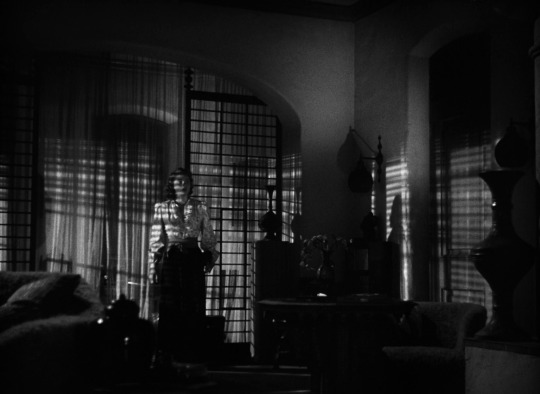
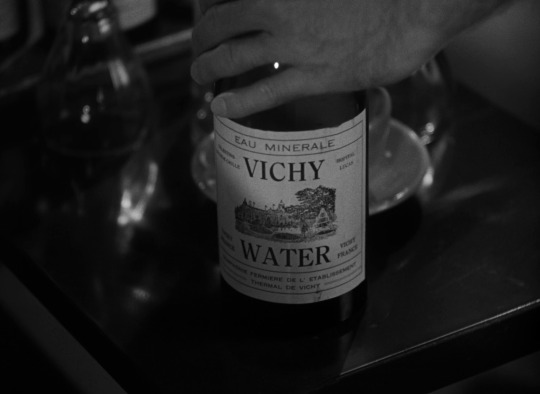
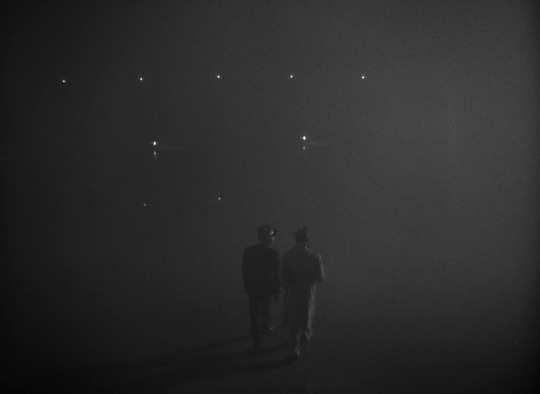

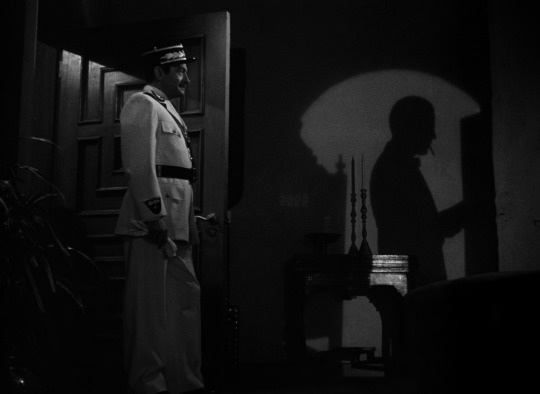


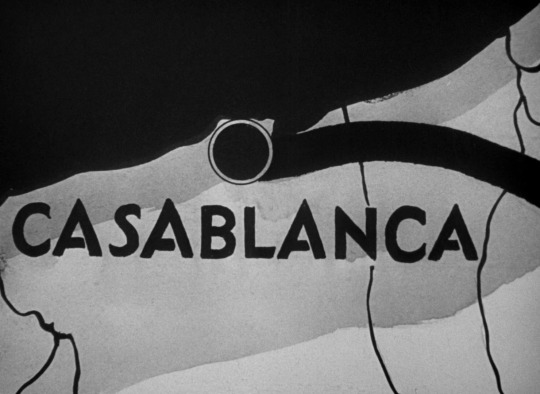
"Play it!"
Casablanca, 1942.
Dir. Michael Curtiz | Writ. Julius J. Epstein, Philip G. Epstein & Howard Koch | DOP Arthur Edeson
132 notes
·
View notes
Text
Dread by the Decade: The Invisible Man
👻 You can support me on Ko-Fi! ❤️
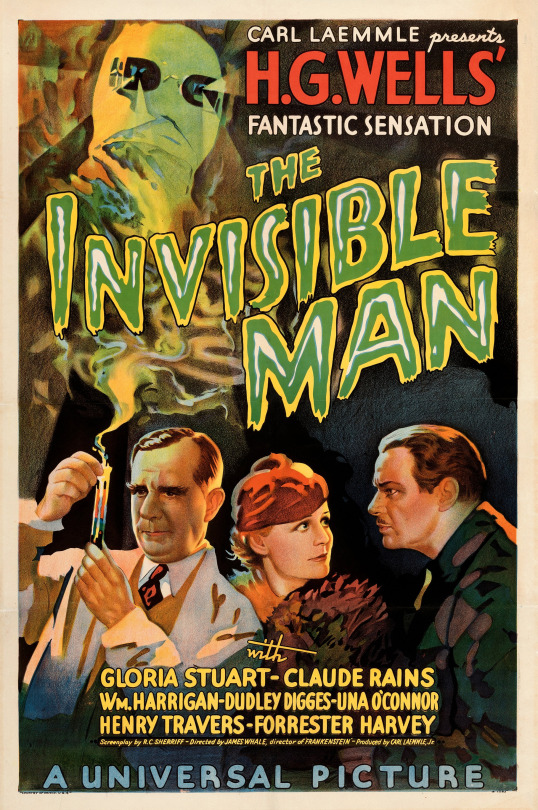
★★★★
Plot: A scientist creates a potion that turns him invisible at the cost of his sanity.
Review: A fun, if occasionally silly, sci-fi horror with an unsettling central concept, exceptional special effects, and memorable set pieces.
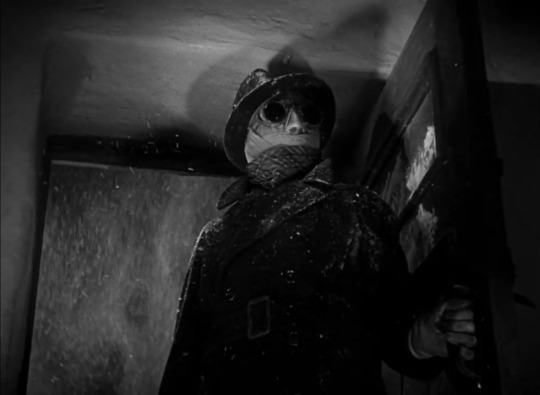
Source Material: The Invisible Man by H. G. Wells
Year: 1933
Genre: Sci-Fi Horror
Country: United States
Language: English
Runtime: 1 hour 11 minutes
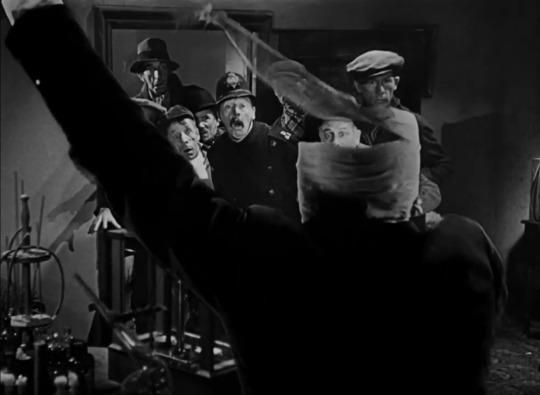
Director: James Whale
Writer: R. C. Sherriff
Cinematographer: Arthur Edeson
Editor: Ted Kent
Composer: Heinz Roemheld
Cast: Gloria Stuart, Claude Rains, William Harrigan, Henry Travers, Una O'Connor
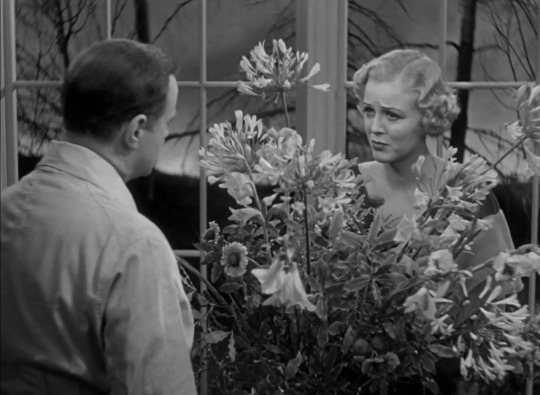
-----
Story: 3.5/5 - Interesting and tense, though some elements feel like they could have been explored more, such as Jack's initial experiments. Some comedic bits also go on for a bit too long.
Performances: 4/5 - Everyone does a very solid job, including Rains, who often has to rely solely on his voice.
Cinematography: 4/5 - Some really clever camerawork when displaying Jack's invisibility.
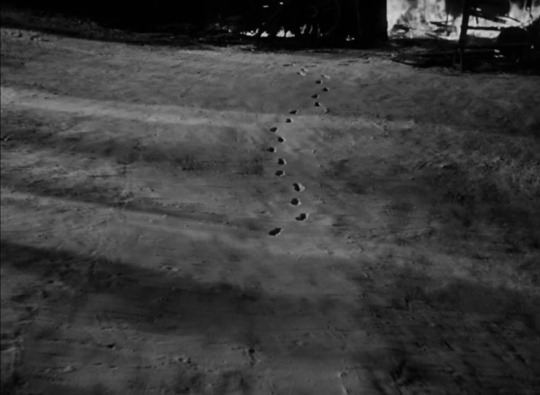
Editing: 3.5/5
Music: 3/5
Effects & Props: 5/5 - Just amazing. Pretty much every scene involving Jack looks remarkable, especially when he's undressing.
Sets: 3.5/5 - Not terribly memorable but they don't really need to be. Well laid out and dressed.
Costumes, Hair, & Make-Up: 4.5/5 - Jack's look as the Invisible Man is deservedly iconic.
youtube
Trigger Warnings:
Mild violence
Brief mention of animal abuse
17 notes
·
View notes
Text

Erich von Stroheim and Maude George in Foolish Wives (Erich von Stroheim, 1922)
Cast: Erich von Stroheim, Miss DuPont, Maude George, Mae Busch, Rudolph Christians, Dale Fuller, Albert Edmondson, Cesare Gravina, Malvina Polo, C.J. Allen. Screenplay: Erich von Stroheim; titles: Marian Ainslee, Walter Anthony. Cinematography: William H. Daniels, Ben F. Reynolds. Art direction: Richard Day, Elmer Sheehy, Van Alstein. Film editing: Arthur Ripley.
Erich von Stroheim's reach exceeded Hollywood's grasp, though not without some initial encouragement by the studio heads. Universal eagerly promoted Foolish Wives as "the first million-dollar movie," and most of that sum was apparent on screen: the huge sets re-creating Monte Carlo that were built on the Monterey Peninsula in California. Some of it, too, wasn't visible: Stroheim reportedly insisted on having underwear created for his actors bearing the monograms of their characters. But there were limits to what the studio would do for the director: When Rudolph Christians, a key actor in the film, died in mid-filming, Stroheim proposed that his scenes be reshot with his stand-in, Robert Edeson, but was forced to give in to the studio's work-around: Edeson played the role in the remaining scenes with his back to the camera. But mostly, the studio's resistance was to Stroheim's vision of a movie that would run somewhere between six and 10 hours and be shown on two consecutive nights. He was forced to settle for a three-and-a-half-hour version, which was subsequently cut again under the instructions of the New York censors. More cuts by the studio followed after the film was a box office disappointment, so that what we see today is a reconstruction cobbled together from existing versions. But after that, what we have is a juicy, kinky melodrama about decadent Europe trying to corrupt innocent America. Stroheim plays a con man pretending to be an exiled Russian aristocrat, Count Sergius Karamzin, living with two women he says are his cousins: the phony princesses Olga Petchnikoff (Maude George) and Vera Petchnikoff (Mae Busch). They're out to milk whatever cash they can from suckers at Monte Carlo, and Sergius sets his sights on Helen Hughes (Miss DuPont), the wife of an American diplomat (Christians). In his down time from that seduction, he also pursues, with purely carnal intent, a hotel maid (Dale Fuller) and the pretty but mentally challenged daughter (Malvina Polo) of the man who counterfeits the money Sergius uses to bilk gamblers at the casino. There's a spectacular storm and an even more spectacular fire, too, before Sergius gets perhaps more than what's coming to him. Even in its truncated version, Foolish Wives is almost too much.
7 notes
·
View notes
Photo
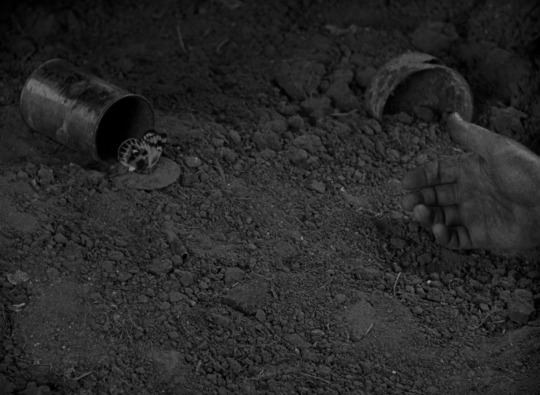
"Only now they're sending babies, and they won't last a week!"
All Quiet on the Western Front (1930)
Director: Lewis Milestone
Cinematography: Arthur Edeson
7 notes
·
View notes
Text

One of my first BW studies from 2020
Frankenstein (1931)
Dir. James Whale
DoP. Arthur Edeson
3 notes
·
View notes
Text

Casablanca (1942)
5 notes
·
View notes
Text

#ProyeccionDeVida
📣 Cine Club. And the Oscar goes to…
🎬 “CASABLANCA” 🌍💣
🔎 Género: Drama / Romance / II Guerra Mundial / África / Nazismo
⏰ Duración: 102 minutos
✍️ Guion: Julius J. Epstein, Philip G. Epstein, Howard Koch
📕 Obra: Murray Burnett y Joan Alison
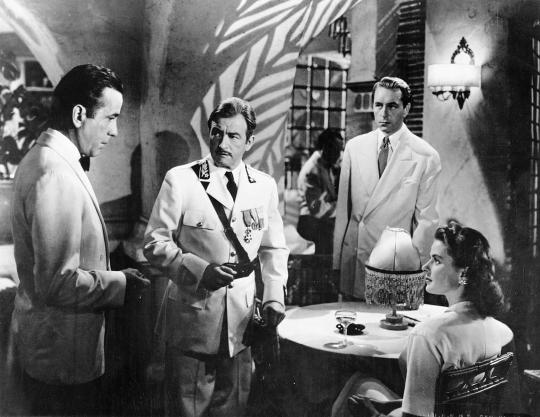
🎼 Música: Max Steiner
📷 Fotografía: Arthur Edeson (B&W)
🗯 Argumento: En los años cuarenta, a consecuencia de la Segunda Guerra Mundial, Casablanca era una ciudad a la que llegaban huyendo del nazismo gente de todas partes: llegar era fácil, pero salir era casi imposible, especialmente si el nombre del fugitivo figuraba en las listas de la Gestapo, que presionaba a la autoridades francesas al mando del corrupto inspector Renault. En este caso, el objetivo de la policía secreta alemana es el líder checo y héroe de la resistencia Victor Laszlo, cuya única esperanza es Rick Blaine, propietario del 'Rick’s Café' y antiguo amante de su mujer, Ilsa Lund. Rick e Ilsa se habían conocido en París, pero la entrada de las tropas alemanas en la capital francesa les separó..
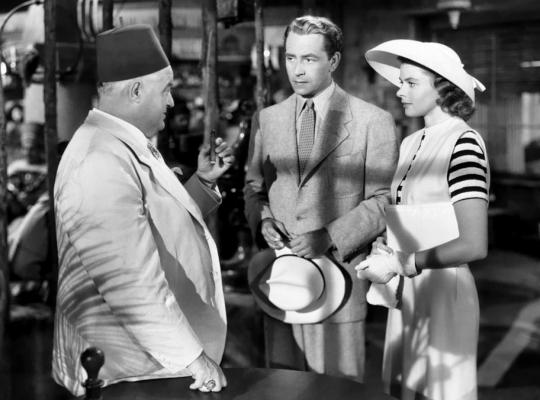
👥 Reparto: Humphrey Bogart, Ingrid Bergman, Paul Henreid, Claude Rains, Dooley Wilson y Conrad Veidt.
📢 Dirección: Michael Curtiz
© Productora: Warner Bros.
🌎 Pais: Estados Unidos
📅 Año: 1942
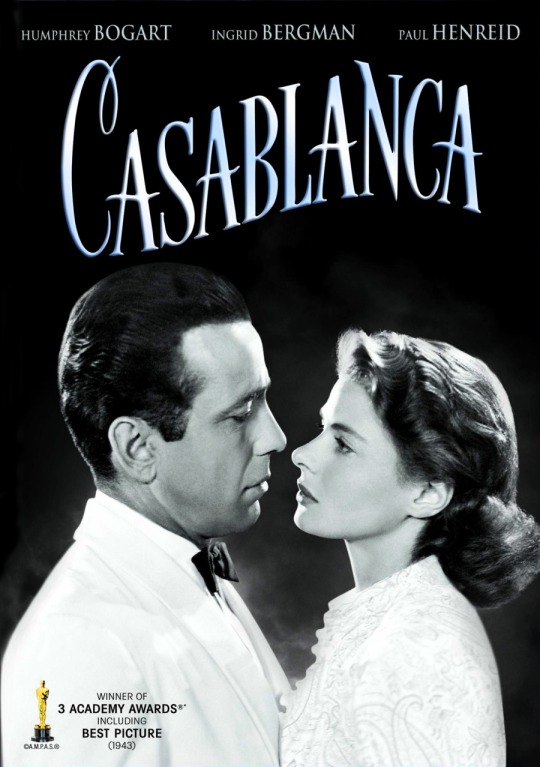
📽 Proyección:
📆 Jueves 15 de Febrero
🕖 7:00pm.
🏛 Auditorio del ICPNA (av. Angamos Oeste 160 – Miraflores)
🚶♀️🚶♂️ Ingreso libre
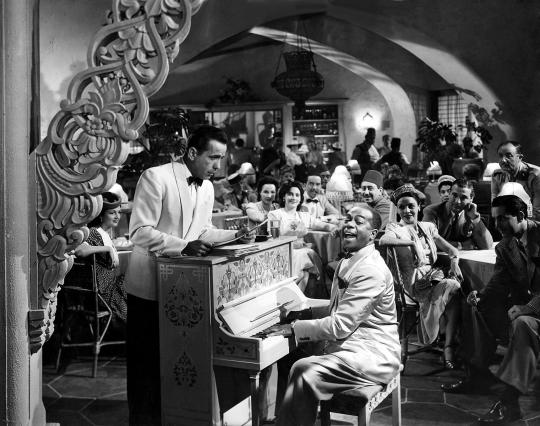
🖱 Inscripción: https://bit.ly/ciclo-de-cine
0 notes
Text

The Maltese Falcon
Directed by John Huston
Photographed by Arthur Edeson
0 notes
Video
youtube
Suite to Casablanca (1942) – composed by Max Steiner; performed by the John Wilson Orchestra under the direction of John Wilson
Performed at the 2013 BBC Proms at London’s Royal Albert Hall, Max Steiner’s score to Casablanca remains one of the enduring film scores in the medium’s history. This suite begins with the opening flourish of the Warner Bros. fanfare (composed by Steiner himself), almost never used today. Set to the would-be romance of Rick Blaine (Humphrey Bogart) and Ilsa Lund (Ingrid Bergman) as they are reunited by fate, the score is centered around the song “As Time Goes By”. “As Time Goes By” was not an original composition, but from a mostly-forgotten Broadway musical called Everybody’s Welcome.
Steiner reportedly disliked “As Time Goes By” and told Warner Bros. (this was a time when the cast and crew of a major studio movie were contracted to a studio) that he wished to do an original song instead. His requested rejected, Steiner took it in grace and – keeping with what happens in Casablanca – never allows “As Time Goes By” to resolve when quoted in his score. Perhaps the quintessential Hollywood romance, Steiner’s score is flush with romantic lines for all sections of the orchestra (strings especially) and other musical quotations referencing Rick and Ilsa’s past, including the French national anthem, “Le Marseillaise”.
Casablanca was nominated for eight Oscars including Original Score (Steiner; losing to Alfred Newman for The Song of Bernadette), Film Editing (Owen Marks), Black-and-White Cinematography (Arthur Edeson), Supporting Actor (Claude Rains), and Actor (Bogart). The film won three Academy Awards on the night: Screenplay (Julius J. Epstein, Philip G. Epstein, and Howard Koch), Director (Michael Curtiz), and Best Picture.
#Casablanca#Max Steiner#John Wilson Orchestra#John Wilson#film score#OST#great film scores#BBC Proms#BBC#31 Days of Oscar
0 notes
Photo
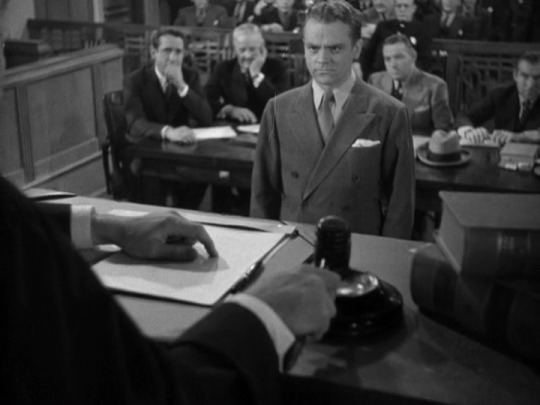
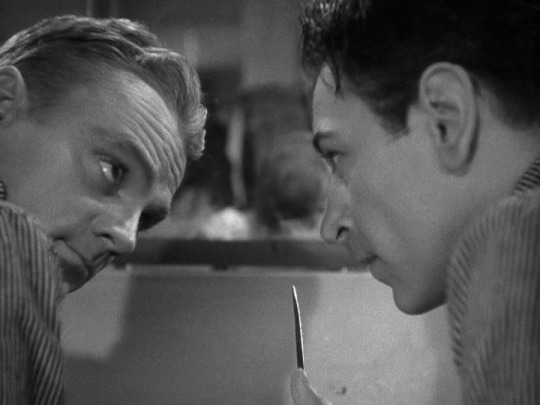
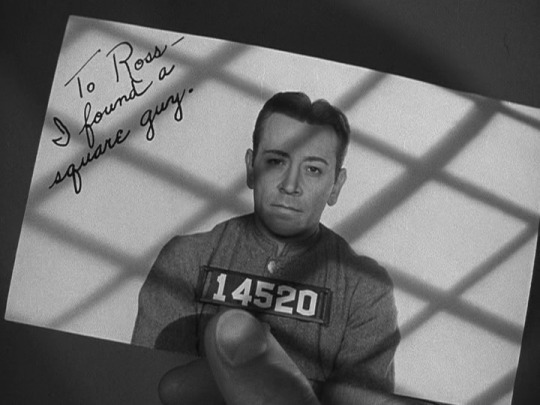
each dawn i die (us, keighley 39)
32 notes
·
View notes